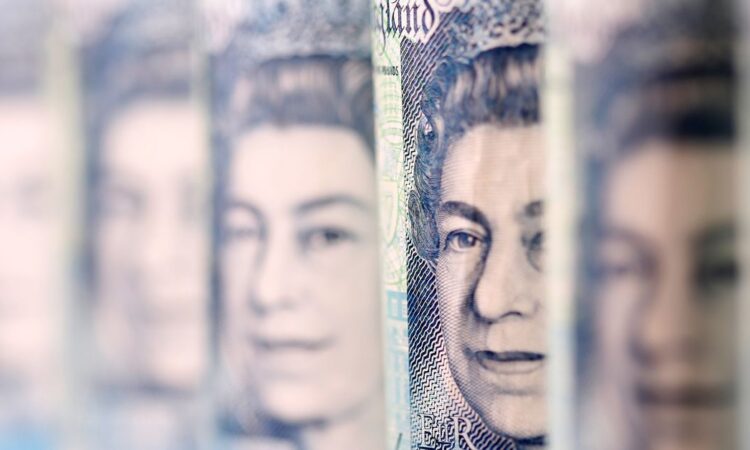
LONDON, Jan 17 (Reuters) – Sterling rose on Tuesday, nearing a one-month high against the U.S. dollar after data showed the pace of pay growth in Britain, closely watched by the Bank of England as it gauges how much higher to raise interest rates, accelerated again.
The yen was perched close to seven-month highs as investors held their breath for a potential policy shift at the Bank of Japan (BOJ).
The pound rose 0.5% to $1.2261, nearing a one-month high touched on Monday, after data showed wage growth picked up more pace in the three months to November, while employment rose by a faster-than-expected 27,000.
“The official data showing employment conditions have held up better than expected should be taken with a pinch of salt”, said Simon Harvey, head of FX Analysis at Monex Europe.
“The BoE is unlikely to count its chickens before they’ve hatched”.
BoE Governor Andrew Bailey said on Monday that a shortage of workers in the labour market posed a major risk to forecasts that inflation will fall from its current levels above 10%.
Foreign exchange strategists at ING and Monex Europe said it is too early to dismiss the risk of another 50-basis-point interest rate increase in February as the BoE is set to hike rates for the 10th consecutive time.
EYES ON BOJ
The yen steadied around 128.65, down 0.1% against the U.S. dollar after hitting a late May high of 127.22 per dollar on Monday. Options trade shows a market braced for sharp moves when the BOJ concludes a two-day meeting on Wednesday, with overnight implied volatility surging to a six-year high.
Speculation is building about a change or end to Japan’s yield curve control policy, given that investors have pushed 10-year bond yields above a ceiling set by the BOJ of 0.5% and the amount of bond buying to defend it is becoming staggering.
“We should not assume that a lifting of yield curve control will be the end of Japan’s monetary policy adjustment. The next step will be to start preparing for the end of negative rates… the BoJ will have to start thinking about QT (quantitative tightening) as well to provide supply to the market,” said George Saravelos, FX strategist at Deutsche Bank.
All these steps should have “an even more positive impact on the currency (yen) than the current adjustment to back-end yields”, he said.
Elsewhere, the U.S. dollar index held near a seven-month low of 102.77 hit on Monday and was 0.1% lower at 102.15. The euro steadied at $1.0842.
There was not a great deal of currency market reaction to stronger-than-expected Chinese growth data. The yuan last traded 0.6% weaker at 6.7768 per dollar.
Reporting by Joice Alves in London, additional reporting by Tom Westbrook in Singapore; Editing by Angus MacSwan and Emelia Sithole-Matarise
Our Standards: The Thomson Reuters Trust Principles.




